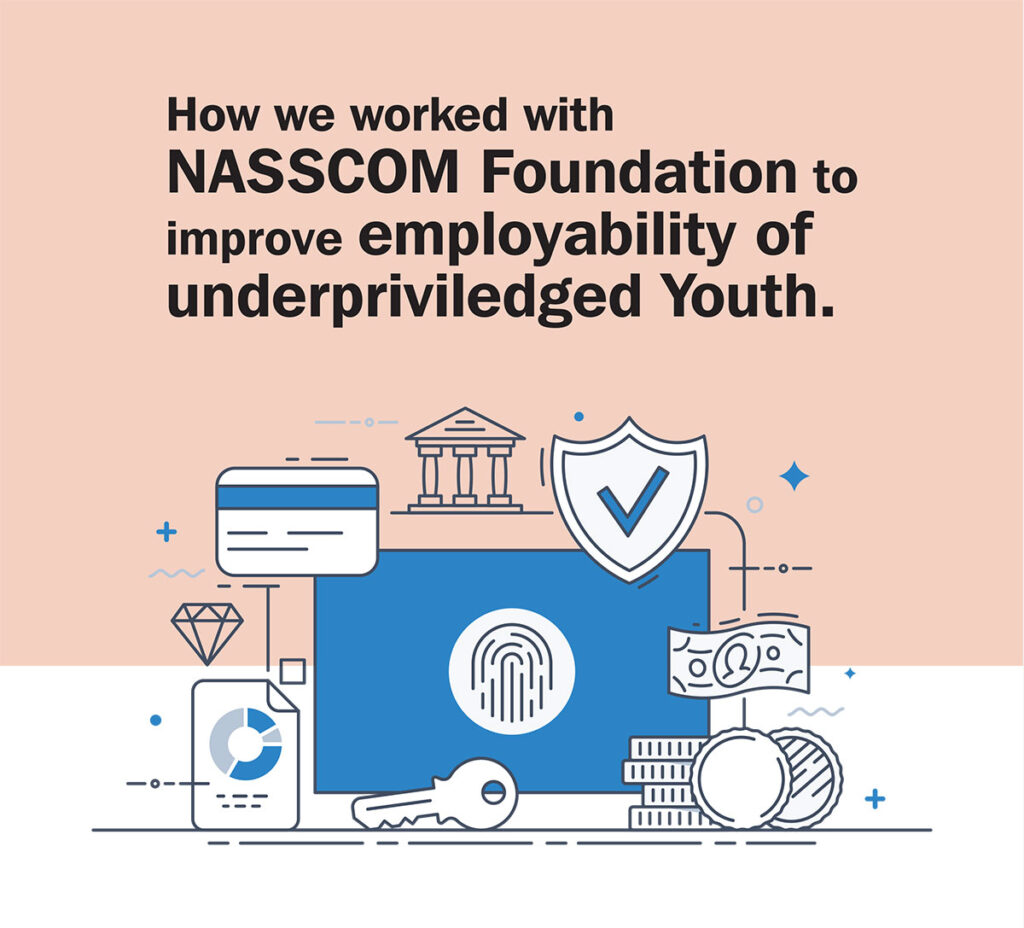
How we worked with NASSCOM Foundation to improve employability of underpriviledged Youth
Synopsis:
The share of the service sector in the Indian economy is increasing at a rapid pace as the
economy modernizes and evolves into a developed economy. Financial services are a critical
part of the service sector which despite technology requires a large volume of manpower to
provide and deliver the services.
Graduates are a good source of manpower for financial services. The requirements for the
job are minimal but many graduates are lacking in the same. To fill this skills gap a Business
Correspondent training focused on BFSI was sponsored by a leading software multinational
in association with Nasscom Foundation. Graduates from colleges from tier 2 and 3 towns
were targeted for this course, thus helping them gain employable skills and achieve financial
stability for themselves and their families. BFSI sector also benefited from the added pool
of trained resources.
The Situation:
Students from government and government-aided colleges, whose colleges have B or C
accreditation are not on the radar of organizations looking for entry-level employees.The
students lack awareness of the sectors, do not have the opportunities to learn, and the
necessary skills are not imparted in their curriculum thus putting them at a disadvantage.
These students typically end up being unemployed though a graduate.
These students need to be provided 3 things to be gainfully employed – Skills specific to the
sector, soft skills to manage their way in organizations, and the opportunity to be exposed
to recruiting organizations. The need is for a training program, that is focused to impart
the necessary skills specific to a sector and bring the job seeker and the job provider on a
platform.
The Solution:
We were appointed as the implementation partner to manage this program. Government
and government-aided colleges with accreditation levels of B and C in North Karnataka were
selected. 10 colleges were selected and TMI mobilized the candidates to join the course by
sharing the benefits and opportunities it provides.
A 100-hour training program was designed by TMI. Due to the pandemic, the entire
program was online with a virtual instructor. The course content covered aspects of the
banking industry, Reserve Bank of India, customer services, loans, sales, etc. A soft skills
module was included to help increase the confidence of the students.
Most of the students, both male & female, were from underprivileged backgrounds and had
to scour for resources like smartphones to attend the training program.
TMI worked closely with financial service firms, NBFCs, etc to help them recruit these
students post completion of the program.
The Impact:
The primary objective of this program was to provide job-oriented skills to underprivileged
sections of society. A target of 60% job placement was set at the time of the launch of the
program.

This program achieved multiple objectives:
- Provided job-oriented skill development to graduate underprivileged youth in
underdeveloped area - Added to the pool of skilled financial services manpower
- Reduced unemployment in the area



